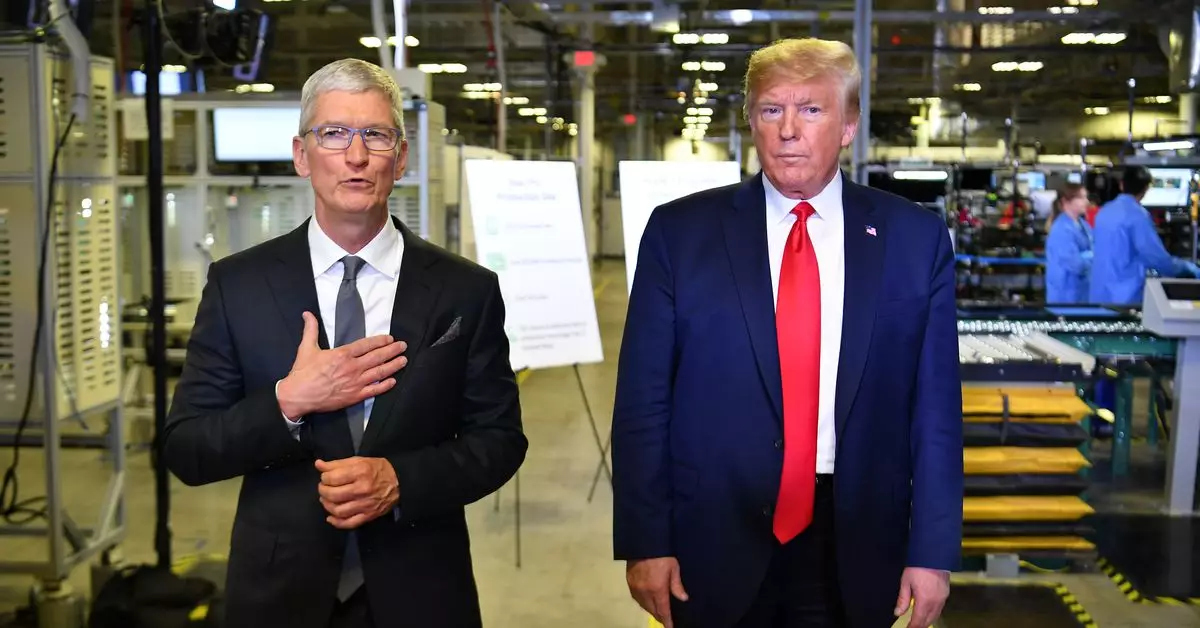In the complex realm of corporate and political relationships, Apple’s CEO Tim Cook has carved out an unconventional niche, particularly during Donald Trump’s presidency. Unlike many counterparts in the tech industry, Cook managed to cultivate a direct relationship with Trump, a maneuver that has not gone unnoticed. This successful rapport is seen as a potential model for other tech leaders aiming to navigate the treacherous waters of political influence and economic policy. The Wall Street Journal’s recent analysis delves into the nuances of Cook’s approach, suggesting that understanding the interplay between direct engagement and a tailored communication strategy can prove advantageous.
One of the salient features of Cook’s strategy was his choice to eschew traditional lobbying routes. Instead, he opted for personal engagement, frequently reaching out to Trump through calls and shared meals. This approach reflects Cook’s understanding that informal dialogue often facilitates more substantial outcomes than formal meetings typically churned through bureaucratic processes. The ability to connect on a personal level not only allowed Cook to tailor his messages but also to present data and concerns in succinct, digestible formats. Reports indicate that this method kept discussions focused, allowing Cook to pivot easily to critical points without getting sidetracked.
According to the Wall Street Journal, Cook effectively identified and emphasized areas where Apple’s corporate interests intersected favorably with Trump’s administration agenda. This dual-focus lent Cook credibility, positioning him as both a business leader and a partner who could contribute positively to Trump’s image and objectives. For instance, Cook’s influence appeared instrumental in shaping tax policies that directly benefitted Apple, reflecting a careful negotiation where each party could claim some level of victory. This symbiotic relationship is a reminder of how corporate leaders can leverage their businesses’ needs while also supporting policymakers’ ambitions.
Cook’s successful navigation of this relationship has sparked interest from other leaders in the tech sector, such as those from Boeing and FedEx, who are now reportedly seeking direct lines of communication with the former president. The key takeaway lesson seems to be the importance of personalized engagement and strategic communication. As the sector continues to face scrutiny over its influence on politics, Cook’s playbook highlights the importance of developing genuine relationships, rather than relying solely on conventional lobbying efforts, which may lack the nuance and personal touch increasingly necessary in modern political landscapes.
In an era where technology firms are at the epicenter of political and economic discourse, learning from Cook’s relationship-building techniques could shape the future of corporate diplomacy. As tech leaders increasingly recognize the significance of personal connections over traditional methods, the potential for more collaborative and impactful partnerships with government entities stands to grow. Cook’s strategy demonstrates that in an age of polarization, simplicity and directness may be the most effective tools for bridging the gap between business and politics. Ultimately, the art of corporate diplomacy may well demand a mixture of tact, patience, and innovation as companies navigate their influences and responsibilities within the public sphere.


Leave a Reply